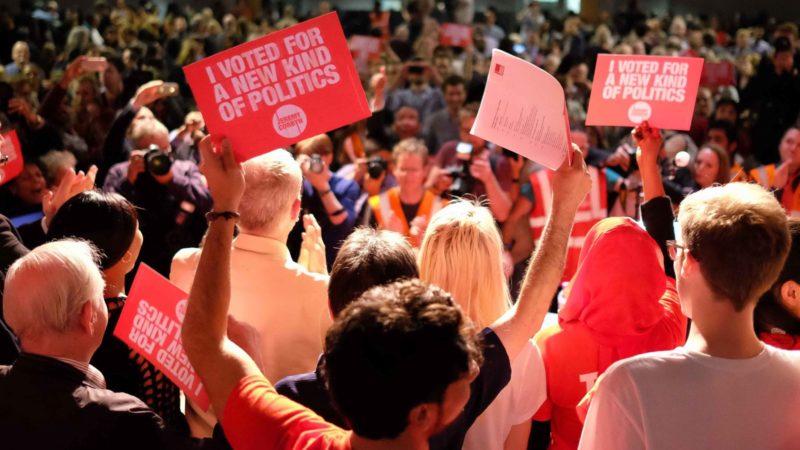
Keir Starmer told Labour members in 2020 that “we should end NEC impositions of candidates” and that “local party members should select their candidates for every election”. But the reality of Starmer’s leadership has been markedly different.
We have instead seen relentless factional attacks and the blocking of locally popular left-wing candidates, culminating recently with the blocking of former Kensington MP Emma Dent Coad earlier this week. It is this kind of bureaucratic rigging that Starmer told us he wanted to end – but has now taken on with a relish that would make even Peter Mandelson blush.
Across the country – Stroud, Hastings, Sedgefield, Wakefield, Camberwell and Peckham, Kensington – highly capable, local, left-wing candidates are being denied the chance to put themselves in front of Labour members in free and fair parliamentary selections. In each instance, candidates have been blocked by so-called ‘due diligence’ checks, but the evidence rarely stacks up. Council leaders, former MPs, community champions – their accomplishments don’t appear to matter, because factional operators on the Labour right deem them too left-wing.
In June, Doina Cornell, the Labour leader of a council that represents around 120,000 people, put herself forward to stand as the constituency’s candidate for parliament, backed by a majority of trade unions including the Starmer-aligned USDAW. After a longlisting interview with a panel including national executive committee (NEC) members from the Labour to Win slate Gurinder Singh Josan and Johanna Baxter – where she was asked questions about why she ‘liked’ a Twitter post from the ‘disruptive’ group Occupy London and shared information about Palestine solidarity events – Cornell was blocked from standing. After the interview, she was given no explanation as to why she was blocked – but the reason isn’t hard to work out.
Sadly, this is just one of many stories; from the former Labour MP Lisa Forbes in Peterborough – who famously beat the Brexit Party in a key 2019 by-election – to Maya Evans, the deputy leader of Hastings Council and campaigner for veterans.
This week, two more candidates on the left of the party were blocked. Maurice Mcleod, a working-class black activist and prominent anti-racist campaigner, was struck off from standing in Camberwell and Peckham. And Dent Coad was blocked in Kensington, where she won for Labour for the first time in the party’s history in 2017. Two passionate and experienced local advocates denied from stating their case to members. Why? Because, as was the case in Stroud and in constituencies up and down the country, the Labour leadership do not trust that party members will select a candidate that is to their choosing.
But it is not just members who are being sidelined by the Starmer leadership. As per a rule passed by the current NEC, trade-union backed candidates are entitled to be included on the longlist for any parliamentary selection. ‘Due diligence’ checks on each candidate has been a way of bypassing that rule. All of the blocked left candidates were backed by trade unions, and so eligible for the longlist, but were struck off nonetheless.
The transgressions put to them during these checks were as ridiculous as ‘liking’ a Caroline Lucas tweet, or even ‘liking’ an Owen Jones post calling on Labour to be bolder. The continuation of this practice comes despite the trade union liaison office (TULO) recently agreeing with the NEC an explicit definition of ‘due diligence’ in order to prevent its factional abuse. As the blocking of both Dent Coad and Mcleod clearly shows, the directive is clearly being ignored.
From trade unionists to council leaders, ordinary members to ex-MPs, activists from all wings of our party should have the opportunity to put their candidacy to local members. But the current practices we are seeing are deeply unfair and self-defeating, and breed resentment and disillusionment amongst the activist base we need on the doorstep at election time.
The consequences of this, however, will reach well beyond the party. Whatever good New Labour may have done, one of its lasting legacies was that it created a widespread distrust in politics and a sense that politicians were more focused on their own careers and Westminster than the communities they were there to represent. The stains of excessive patronage and ‘cronyism’ were hard to scrub off.
So, with Labour riding high in the polls and a Labour government more likely than it has been in years, we need to make sure the party that goes into government is one that remains anchored in the communities that put us there and is responsive to their needs. And if we really want to see the transformative socialist solutions that so much of the country now supports – such as a £15 minimum wage and public ownership of mail and energy – we need people in parliament who have a lifetime track record of campaigning for them, and are willing to fight for them.
This is what is at stake: not some abstract factional battle between Momentum and Labour to Win – but the chance to bring real change to a country crying out for it.




More from LabourList
Antonia Romeo appointed to lead civil service as new Cabinet Secretary
‘If Labour is serious about upskilling Britain, it must mobilise local businesses’
Stella Tsantekidou column: ‘What are we to make of the Labour Together scandal?’